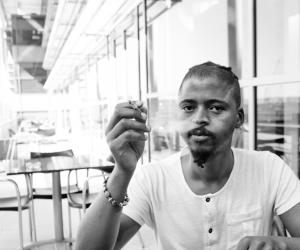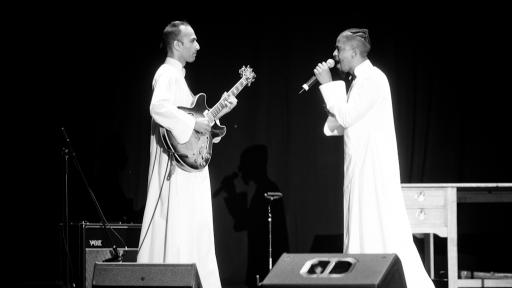From the Series
At Design Indaba Conference 2013 artist Nicholas Hlobo descended onto the stage in a white cocoon. In an evocative performance comprising music performed by himself and two others, and video images on the screen behind him, Hlobo took the audience on a journey.
This journey was the story of Hlobo’s life and work, his influences, his culture, and a process of unravelling through which he creates his own world and discovers unknown truths about himself.
Hlobo tells of Xhosa traditions – the singing and the drumming, the initiate process whereby boys become men, and how the Xhosa like playing mind games.
He reflects on his very first performance and the psychological preparation that was involved. This performance referenced songs by the legendary Miriam Makeba. Hlobo refers to other influences and forces that have come to shape the way he can “write with objects and sketch with words”, including his grandmother, his curiosity about the Xhosa culture and language, and Johannesburg “the powerhouse of South Africa”.
Hlobo points out that his work is always quite sexually charged. He believes that power and sexual prowess is closely linked, and refers to the importance of the penis in his culture.
Hlobo's performance was supported by drummer Kesivan Naidoo and guitarist Reza Khota.
Naidoo, a prominent Cape Town-based drummer, plays with the band Babu and is a co-founder of jazz club The Mahogany Room in the city. In 2009 Naidoo won the Standard Bank Young Artist Award for Jazz.
Khota is a celebrated guitarist, composer and member of jazz band Babu. He has been a recipient of several important awards, including numerous Samro bursaries and merit awards. In 1998 Khota was awarded first prize in the National Classical Guitar Competition adjudicated by, amongst others, the renowned Czech guitarist/composer Stepan Rak.











